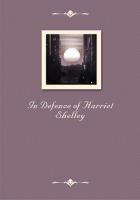Lady Earle's boudoir was always considered one of the prettiest rooms at Earlescourt. Few, but rare, pictures adorned its walls.
The long French windows opened on to the prettiest part of the gardens, where a large fountain rippled merrily in the sunshine.
Groups of flowers in rare and costly vases perfumed the room.
Lord Earle had but drawn a pretty lounging chair to the window, and sat there, looking happier than he had looked for months.
Lady Earle went on with her task of arranging some delicate leaves and blossoms ready for sketching.
"Ronald," said his father, "I have been waiting here some time.
Have you been out?"
"I have been in the park with Miss Charteris," replied Ronald.
Lord Earle smiled again, evidently well pleased to hear that intelligence.
"A pleasant and sensible method of spending your time," he continued; "and, strange to say, it is on that very subject I wish to speak to you. Your attentions to Miss Charteris--"
"My attentions!" cried Ronald. "You are mistaken. I have never paid any."
"You need have no fear this time," said Lord Earle. "Your mother tells me of the numerous comments made last evening on your long tete-a-tete in the conservatory. I know some of your secrets.
There can be no doubt that Miss Charteris has a great regard for you. I sent for you to say that, far from my again offering any opposition to your marriage, the dearest wish of my heart will be gratified when I call Valentine Charteris my daughter."
He paused for a reply, but none came. Ronald's face had grown strangely pale.
"We never named our wish to you," continued Lord Earle, "but years ago your mother and I hoped you would some day love Miss Charteris. She is very beautiful; she is the truest, noblest, the best woman I know. I am proud of your choice, Ronald--more proud than words can express."
Still Ronald made no reply, and Lady Earle looked up at him quickly.
"You need not fear for Valentine," she said. "I must not betray any secrets; she likes you, Ronald; I will say no more. If you ask her to be your wife, I do not think you will ask in vain."
"There is some great mistake," said Ronald, his pale lips quivering. "Miss Charteris has no thought for me."
"She has no thought for any one else," rejoined Lady Earle, quickly.
"And I," continued Ronald, "never dreamed of ****** her my wife.
I do not love her. I can never marry Valentine Charteris."
The smiles died from Lord Earle's face, and his wife dropped the pretty blossoms she was arranging.
"Then why have you paid the girl so much attention?" asked his father, gravely. "Every one has remarked your manner; you never seemed happy away from her."
"I wished to make her my friend," said Ronald; "I never thought of anything else."
He stood aghast when he remembered why he had tried so hard to win her friendship. What if Valentine misunderstood him?
"Others thought for you," said Lady Earle, dryly. "Of course, if I am mistaken, there is no more to be said; I merely intended to say how happy such a marriage would make me. If you do not love the young lady the matter ends, I suppose."
"Can you not love her, Ronald?" asked his mother, gently. "She is so fair and good, so well fitted to be the future mistress of Earlescourt. Can you not love her?"
"Nothing was further from my thoughts," he replied.
"Surely," interrupted Lady Earle, "you have forgotten the idle, boyish folly that angered your father some time since--that can not be your reason?"
"Hush, mother," said Ronald, standing erect and dauntless; "I was coming to tell you my secret when you met me. Father, I deceived and disobeyed you. I followed Dora Thorne to Eastham, and married her there."
A low cry came from Lady Earle's lips. Ronald saw his father's face grow white--livid--with anger; but no word broke the awful silence that fell upon them. Hours seemed to pass in the space of a few minutes.
"You married her," said Lord Earle, in a low, hoarse voice, "remembering what I said?"
"I married her," replied Ronald, "hoping you would retract hard, cruel words that you never meant. I could not help it, father; she has no one but me; they would have forced her to marry some one she did not like."
"Enough," interrupted Lord Earle. "Tell me when and where. Let me understand whether the deed is irrevocable or not."
Calmly, but with trembling lips, Ronald gave him every particular.
"Yes, the marriage is legal enough," said the master of Earlescourt. "You had to choose between duty, honor, home, position--and Dora Thorne. You preferred Dora; you must leave the rest."
"Father, you will forgive me," cried Ronald. "I am your only son."
"Yes," said Lord Earle, drearily, "you are my only son. Heaven grant no other child may pierce his father's heart as you have done mine! Years ago, Ronald, my life was blighted--my hopes, wishes, ambitions, and plans all melted; they lived again in you.
I longed with wicked impatience for the time when you should carry out my dreams, and add fresh luster to a grand old name. I have lived in your life; and now, for the sake of a ******, pretty, foolish girl, you have forsaken me--you have deliberately trampled upon every hope that I had."
"Let me atone for it," cried Ronald. "I never thought of these things."
"You can not atone," said Lord Earle, gravely. "I can never trust you again. From this time forth I have no son. My heir you must be when the life you have darkened ends. My son is dead to me."
There was no anger in the stern, grave face turned toward the unhappy young man.
"I never broke my word," he continued, "and never shall. You have chosen your own path; take it. You preferred this Dora to me; go to her. I told you if you persisted in your folly, I would never look upon your face again, and I never will."
"Oh, Rupert!" cried Lady Earle; "be merciful. He is my only child. I shall die if you send him from me."















